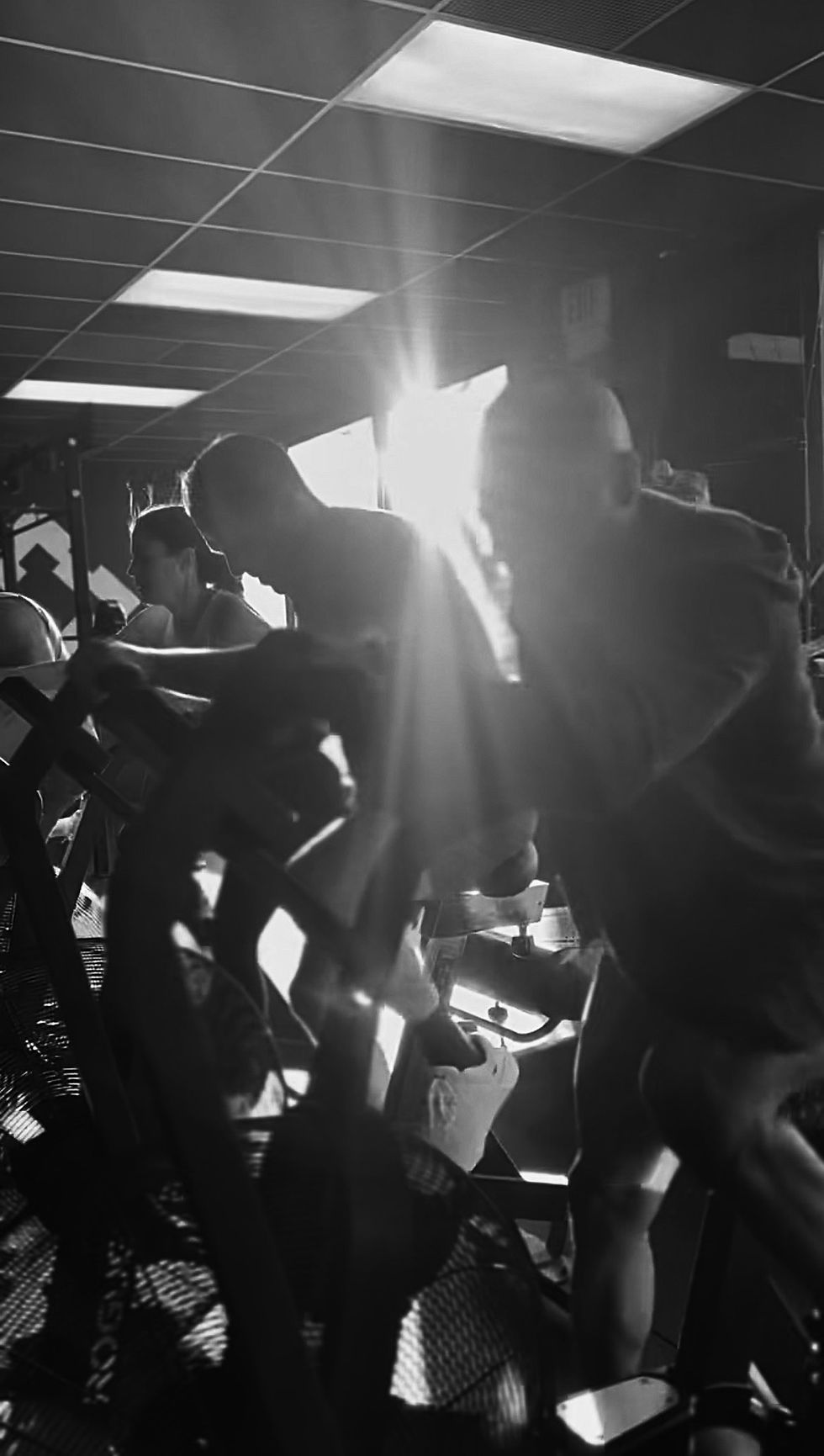BONDS
- Feb 17, 2019
- 3 min read
In a time when friendships are nothing more than a competition for quantity over quality it’s no wonder why people go through friends quicker than bad food does with dysentery. We develop friendships today with strokes on a keyboard, likes with a click and sometimes we even get frisky and throw a couple follows here and there. The convenience waters down the experience and we are left with a plethora of options that have just as much substance as what was mentioned at the beginning of this paragraph. There are many things that are vital for a friendship to survive but the true building blocks come from the intimate interactions, the hardship is the glue. For me, fitness was the vessel for creating these bonds with others. The suffering and the pain was the impetus and what was left was a mutual appreciation for capability, a repository for respect. Experience tells me that training honestly, especially in solitude, is one of the most difficult things to do. What’s even harder is finding the right people who are willing to come along with you for the ride and also honest enough to tell you how much you actually suck…
When we experience the suffering that occurs while training alone, we can only bring ourselves to go so far. We inevitably stagnate, not even realizing that we’re the only one riding the merry go round. However, there is something to be said about what transpires when multiple people suffer together towards a task and the type of bond it creates between them. It serves as a filter, everyone’s masks are removed, their baggage gets tossed and all that’s left is a comradery that sees it through to the end. A grand reveal indeed…The value in training in a group setting develops a mutual understanding through an experience, a collective effort through a fog of uncertainty, a friendship created through hardship. Even through this realization through training, I still feel that it has become far too easy to hide in the gym these days. Our options to do so have become virtually limitless, but in fact the best hiding places are the ones that we create for ourselves. We use it as a means to protect our vulnerabilities and insecurities so we can remain…comfortable. We end up taking an opportunity to hide within the bubble that we have created for ourselves that no one else would ever dare to pop. A bubble is delicate yet has the potential to grow quickly offering minimal protection from an unpleasant reality. It isolates well but the transparency is there; everyone can see that you’re still full of shit.
We would prefer praise rather than honesty at the expense of our potential and because of this I call people out, they call me out, I even call myself out. The opportunity for accountability is up for grabs at all times and why shouldn’t it be? How else are we supposed to train, especially honestly? An honest admission can prevent our Ego from taking over as it is most times in the driver’s seat when we train. It dangerously steers us towards a destination where thoughts of doubt, negativity and disbelief are it’s only inhabitance. The session continues and so does the pain, we even begin to question our capabilities and the validity of what we are trying to accomplish. Yet the drive itself can begin to shift once we consciously make the decision to add another passenger to the car. The focus is diverted, we suddenly realize that we’re not the only ones being administered the onslaught of agony. We begin to separate the ego from the pain and the person next to us does the same. The only thing that remains is something that’s shared and clearly identifiable, the effort and the work. The appreciation is mutual, the respect is real, we can’t help but work harder for each other.
The irony lies within the situation that training facilitates for us and the affect that it has on our effort. The “self” is what’s actually allowing us to perform the task in the first place but also the same thing that ends up limiting us down the road. It seems as though when we place the importance on something else other than ourselves, our hesitation and apprehension to go above and beyond disappears instantaneously. It’s all the more reason why these types of bonds become more seemingly necessary. The realization starts to set in. Whatever this pain is costing you is costing someone else a lot more. There is an instinctual reflex to reciprocate regardless of the inherent risks that are involved. You both come out on the other side with a bond consisting of a new-found respect; an understanding of yourself through someone else. A friendship that’s a consequence of hardship.





Comments